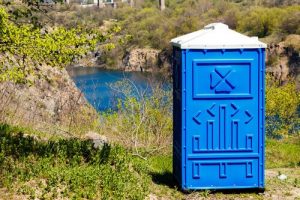Contact Us:
11 Beacon St, Ste 420
Boston, MA 02108
Deluxe porta potties are designed for those seeking a more comfortable and elegant restroom experience, perfect for high-end events, weddings, and VIP areas.
One of the main advantages of deluxe porta potties is the flushable toilets and running water sinks that come equipped with soap dispensers. This setup mirrors a traditional indoor restroom, providing guests with a cleaner and more hygienic option.
Many deluxe portable restrooms include interior lighting and climate control systems such as heating or air conditioning. These features offer a level of comfort not found in standard porta potties, ensuring a pleasant experience no matter the weather conditions.
The interior of a deluxe porta potty often features high-end materials like wooden cabinets, mirrors, and non-slip flooring. These upscale finishes create an environment that closely resembles a high-quality indoor restroom.
To enhance user comfort, deluxe units may offer paper towel dispensers, coat hooks, waste bins, and even shelving. Some units also include background music to further improve the ambiance, making them ideal for premium events.
 10 things you need to know before renting a deluxe portable toilet
10 things you need to know before renting a deluxe portable toiletWhen most people think about portable toilets, the first thing that comes to mind is construction sites. And while portable toilets are certainly a vital part of any construction site, they can be used in various other settings as well. Here are ten things you need to know before renting a deluxe portable toilet or deluxe porta potty.
The first thing you need to know about portable toilets is what they are and what they can be used for. Portable toilets are simply toilets that can be moved from one location to another, making them ideal for construction sites, weddings, and other events where a traditional toilet may not be readily available.
Portable toilets work by using a holding tank that collects waste material. The tank is then emptied by a septic truck regularly.
The cost of renting a portable toilet in Boston, for example, can vary depending on the size of the unit and the length of time it will be needed. However, in general, renting a portable toilet for a construction site will range from $100 to $200 per month.
The main difference between a standard porta potty and a deluxe porta potty is the size of the unit. Deluxe units are typically larger and have more features, such as flushable toilets, sinks, and mirrors.
The frequency of service will depend on the size of the unit and the number of people using it. However, most portable toilets must be serviced at least once a week.
In general, the only maintenance you will need to do on your portable toilet is to ensure it is clean and free of debris. However, you may also need to have the holding tank emptied regularly.
The easiest way to empty your portable toilet is to have it serviced by a septic truck. However, if you are in a remote location, you may need to empty the tank yourself.
If your portable toilet overflows, you must contact a professional septic company to have the unit cleaned and repaired.
Yes, you can use your portable toilet in the winter; however, you may need to purchase a winterizing kit to keep the unit from freezing. In a city like Boston, you won’t have any problem.
You may need a permit to use a portable toilet, depending on your location and the regulations in your area; if you live in Boston, you should talk with the specific office. However, in most cases, you will not need a permit. Be sure to check with your local authorities before using a portable toilet.
Now that you know more about portable toilets, you can decide if renting one is right for you. Whether you need a porta potty for a construction site or an event, keep the above information in mind to ensure a positive experience.

Monday: 7am – 7pm
Tuesday: 7am – 7pm
Wednesday: 7am – 7pm
Thursday: 7am – 7pm
Friday: 7am – 7pm
Saturday: 7am – 7pm
Sunday: Closed
© 2026 Boston Porta Potty.
